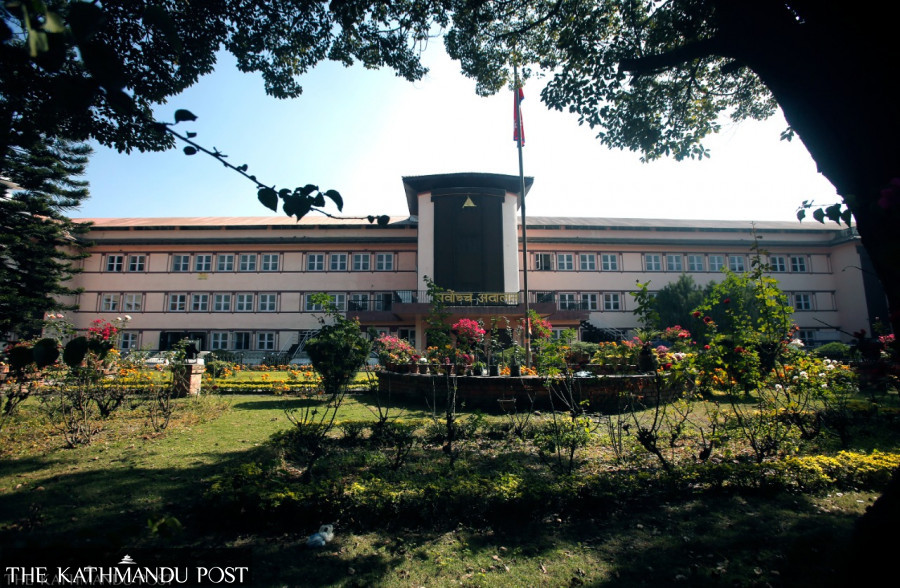National
Supreme Court rejects petition challenging the date of local election
The petitioner, who approached the court arguing May 13 polls will deprive thousands of elected representatives of their right to five-year term, says he will appeal against the court’s refusal.
Post Report
The Supreme Court has rejected a petition challenging the government’s decision to hold local level elections across the country on May 13 in a single phase.
Sanjeev Kumar Sah, the mayor of Bhangaha Municipality in Mahottari district, had approached the court demanding that the poll date decision be scrapped. Sah argued that holding elections across the country for 753 local units breaches the constitutional provisions that guarantees five years’ terms for all representatives.
However, the Supreme Court administration refused to register the petition, saying Sah's claim doesn’t hold ground.
“The petition was rejected as the Local Election Election Act clearly says the tenure of the local representatives will be counted based on the first phase of elections. The local representatives will have completed the five years tenure by upcoming elections as per the law,” Baburam Dahal, spokesperson for the court, told the Post. “The argument presented by Sah, therefore, is baseless.”
In 2017, local elections were held in three phases—on May 14, June 28 and September 18.
In the first phase, 14,556 representatives were elected for 283 local units. Similarly, the number of representatives elected from the second phase stood at 15,038 for 334 local bodies. In the third phase, Elections were held for 136 local bodies to elect 6,627 local representatives.
If the elections are held on May 13, those elected in the third phase elections will have to retire four months before their five-year tenure ends, argued Sah. Similarly, those elected in the second phase will have to retire a month prior to the completion of their five years of term guaranteed by the Constitution of Nepal.
As per Article 215 (6) of the constitution, the terms of office of the chairperson, vice-chairperson, ward chairperson and members shall be five years from the date of their election.
The government on Monday declared the local elections for May 13 in consultation with the Election Commission in a single phase.
Commission officials have cited election laws.Section 55 of the Local Level Election Act 2017 states that the term of all local representatives is deemed to have begun from the seventh day of the date of the first phase of elections. By that extension, all representatives, including those who were elected from June 28 and September 18 elections, will have their terms ended on May 20, as the first phase was held on May 14.
Sah, however, argued that the constitution prevails over the Act. By declaring elections for May 13, the government has breached the constitution that gives the elected representatives to work for a full five years,” Sah, who approached the court, told the Post. “I wanted to demand the Supreme Court’s intervention in nullifying the government’s decision.”
In 2017, elections were held in Bagmati, Gandaki and Karnali provinces in the first phase.
In the second phase, elections were held in Province 1, Lumbini and Sudurpaschim. The third and the last phase of election was held in Province 2, which was recently named Madhes.
Sah, who comes from Madhes Province, said he will appeal against the court’s decision to reject his petition.
“I will challenge the court administration's decision to reject my petition,” he said.




 13.12°C Kathmandu
13.12°C Kathmandu













